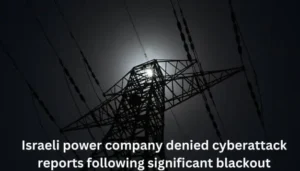
|
Getting your Trinity Audio player ready... |
According to an exceptionally critical parliamentary report released on Wednesday by the Joint Committee on the National Security Strategy (JCNSS), there is a “high risk” that the United Kingdom will face a “catastrophic ransomware attack at any moment” as a result of the British government’s failures to combat ransomware.
The report specifically calls attention to former Home Secretary Suella Braverman, stating that she “showed no interest in the topic” despite her department’s claim to be the government lead on the matter as a policy matter and a risk to national security.
The JCNSS claimed to have “compared public statements on ransomware with those on another major policy issue — small boats,” citing “an exposé in The Record.”
“We discovered that the Home Office’s focus on small boats and illegal migration has overshadowed its public output on ransomware and cyber security, which has been virtually nonexistent,” the JCNSS stated.
According to the report, the Cabinet Office, working with the National Cyber Security Centre and National Crime Agency, should take up ransomware responsibilities instead of the Home Office. This will allow the Cabinet Office to “be overseen directly by the Deputy Prime Minister, as part of a holistic approach to cyber security and resilience.”
The JCNSS chair, Dame Margaret Beckett, declared: “The UK has the dubious distinction of being one of the most cyber-attacked nations in the world.” The Committee finds that the government’s response to this threat and its investment in it is not on par with the best in the world.
“The failure to rise to meet this challenge will rightly be seen as an inexcusable strategic failure in the likely event of a massive, catastrophic ransomware attack,” Beckett issued a warning.
Threat of Catastrophic Ransomware Attack on UK Government
The Joint Committee on the National Security Strategy (JCNSS) issued a damning report on Wednesday, stating that there is a “high risk” of a catastrophic attack at any time due to the UK Government’s inaction in responding to the growing ransomware threat.
Even though Suella Braverman’s department claims to be leading the government’s efforts on national security risk and policy matters, the report singles her out for the shortcomings.
“The former Home Secretary showed no interest in the topic, despite the Home Office’s claim to be leading on ransomware as a national security risk and policy issue.”
The report urges a major change in authority, advocating that the Home Office be relieved of its ransomware management responsibilities in reaction to these findings. As part of a comprehensive strategy for cyber resilience, the Cabinet Office, in coordination with the National Cyber Security Centre (NCSC) and National Crime Agency (NCA), ought to assume leadership. Oliver Dowden, the deputy prime minister, should have direct supervision over this work.
This information was made near the end of a year that saw a spike in ransomware attacks; the Parliamentary report states that March of this year was the “worst month on record” for victims whose data was stolen and sold on the dark web. Because of this, ransomware is now the top threat according to the NCSC.
“Undoubtedly, the UK is among the countries most frequently targeted by cyberattacks worldwide. The JCNSS chair, Dame Margaret Beckett, stated, “It is evident to the Committee that the Government’s investment in and response to this threat are not equally world-beating.
A government spokesman acknowledged the report’s conclusions and promised to release a thorough analysis when appropriate. The spokesperson outlined recent initiatives that condemn ransom payments globally, such as the government’s involvement in the Counter Ransomware Initiative and two rounds of sanctions aimed at 18 of the criminals involved in the ransomware ecosystem.
They did, however, stress that the Home Office would continue to serve as the primary agency for cybercrime.







